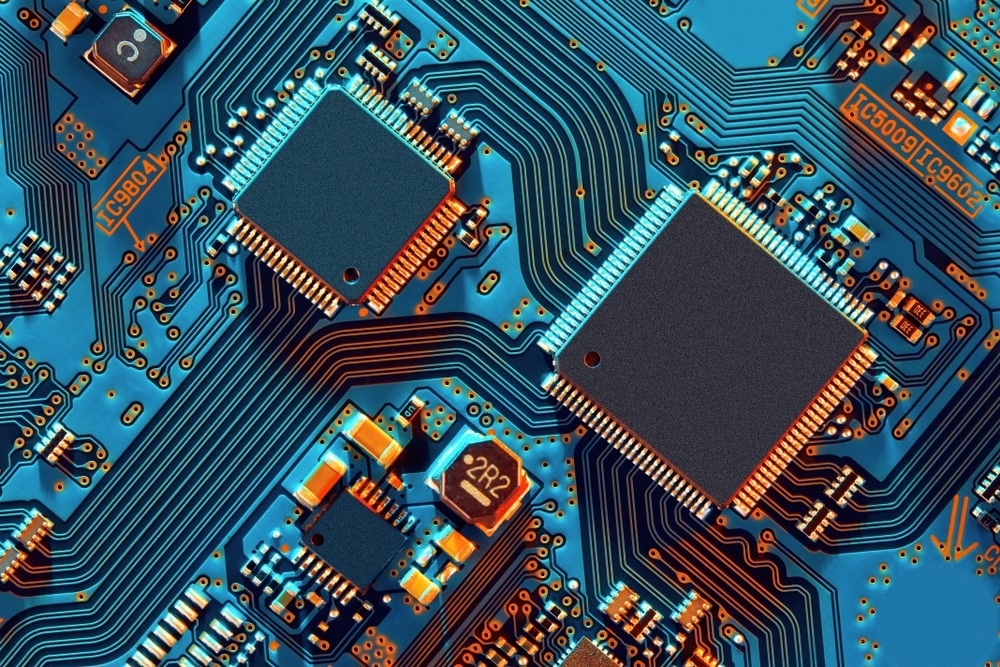In this interview, we speak with CELUS GmbH, a Munich-based deep tech company aiming to accelerate innovations in the electronic engineering industry through its cloud-based platform.
Who are CELUS, and what role do they have in the electronics and engineering industry?
CELUS was founded in 2018 by Tobias Pohl (CEO), Alexander Pohl (CTO) and André Alcalde (Engineering Director). CELUS is a deep tech company that uses artificial intelligence (AI) to streamline circuit board engineering and open up new levels of efficiency and quality assurance to electronic engineering professionals, distributors, and component manufacturers.
CELUS has developed a cloud-based engineering platform that supports electronics engineers with rich component data from electronic manufacturers and adds automation to accelerate this design process. This leads to proven design time reductions of up to 90%, which is especially important given the severe chip shortages facing the world. More than 1,800 engineers already use the CELUS Engineering Platform as of today, an increase of 3,000 % compared with December 2021.

Image Credit: raigvi/Shutterstock.com
What are some of the challenges involved with the design of electronics, especially for next-generation devices?
Developing electronics is an incredibly complex task. It starts with component selection, choosing from more than 600 million different components. Every component has differently structured datasheets which can be tens of thousands of pages long. It is simply impossible to look at every potential part.
The same goes with schematics and PCB layout design. There are almost unlimited ways to solve any one technical challenge and no one has the time to run complex calculations on every connection. This is where engineers use their extensive experience on projects.
Arguably the biggest challenge for engineers comes from time pressure. With product life cycles getting shorter and shorter, pressure on engineering teams has risen. The only solution to this is increasing efficiency through automation.
How could automation revolutionize the electronics industry in particular, and what downstream benefits could this provide to other sectors?
Automation usually works best when resolving the copious amounts of small decisions that need to be made beyond what engineers alone can handle. Looking through millions of components is simply not feasible for humans. Automation can clearly and efficiently search through huge datasets.
Creating a wide variety of solutions and offering trade-offs to engineers, or workers in others sectors too, that automate and streamline tasks is important. For engineers, this allows them to focus on the most complex parts of the design while allowing automation to take care of more repetitive design tasks.
How does CELUS utilize cloud-based software and artificial intelligence to help industry professionals overcome these challenges?
The CELUS Engineering Platform runs entirely in the cloud and uses a wide variety of different technologies, including artificial intelligence. This enables us to provide our users with far greater performances than their client computer could offer and work from any device and wherever they are.
What are some of the highlight technologies that CELUS offers, and how can they be integrated into an engineering workflow?
The CELUS Engineering Platform is split into two parts. CELUS Orbit allows companies to manage and organize their library information and know-how. Using machine learning and additional user input, Orbit can, for example, import circuit modules and turn them into CUBOs(™), which allows them to be automatically reused in any new design.
The second part of the CELUS Engineering Platform, CELUS Supernova, enables design reuse and automation. In Supernova, you can describe your project goal and the needed functionality and turn this automatically into a full component selection, schematics and a first layout prototype.
CELUS recently entered a collaboration with Würth Elektronik, a global manufacturer of electronic and electromechanical components. Could you discuss this partnership, and how it might shape the future direction of the company?
We recently partnered with Würth Elektronik, the global manufacturer of electronic and electromechanical components with revenues of €1.1billion in 2021 and eight thousand employees worldwide, to integrate Würth's components into our component database. This further strengthens CELUS' capabilities to automate the creation of electronic designs.
Electronic engineers will benefit from the addition of Würth Elektronik components as they can find and select their required components in a fraction of the time compared to traditional methods. This partnership pairs engineers with CELUS’ AI automation software and Würth Elektronik’s component reserves, helping to reduce design times further.
Long-term, CELUS wants to expand its bank of data to perfect its software and this new influx of component information, through integrating Würth Elektronik’s components into the CELUS component database, further bolsters CELUS’ capabilities to automate the creation of electronic designs. CELUS intends to reach engineers in huge markets such as the United States, but also beyond this as the automating offering is applicable across the global electronics industry.

Image Credit: Quardia/Shutterstock.com
Based in Munich, CELUS can witness the growth of electrical engineering in Europe firsthand. What are some of the trends you are monitoring in the European electrical engineering industry, and how does this compare to the global landscape?
Munich being the European capital of the electronics industry certainly makes CELUS well-positioned and a great place to be. We have frequent interactions with some of the largest electronic components distributors and component manufacturers and we are witnessing firsthand the struggle that companies have in hiring skilled hardware designers.
While we believe this is a global trend, the European market, in particular, is wiped clean of available talent. Add to this the continuing shortage in electrical components, which in many cases forces companies to redesign their products and the geopolitical drive to move production of critical components back into Europe; it becomes clear that the talent shortage will not improve anytime soon.
As such, we believe that our electronic design automation platform addresses a real and pressing need in the market and we see a widening consensus for our belief amongst leading industry players.
The projected growth in electronic design cannot be addressed through the manual design process as we know it and will require design automation to help carry the load. We have seen it in software and semiconductor design and now board-level hardware design is finally catching up. We are committed to lead this change through the CELUS design automation platform.
What are the next steps for CELUS?
Looking to the future, CELUS hopes to continue to help reduce electronic engineering requirements by simplifying printed circuit boards (PCBs). We hope that all electronic engineers will benefit from CELUS’ AI-informed platforms and be able to select and access the necessary components in all their design cycles, therefore increasing sector-wide efficiency.
Off the back of the recent news of the Würth Elektronik partnership, the next steps for CELUS are to provide thousands of users of our platform with instant access to Würth Elektronik’s extensive product range and advanced solutions. CELUS will closely collaborate with Würth Elektronik on innovative projects that focus on customer needs and trends in the market, and we have more partnerships like this in the pipeline.
Alongside this, CELUS will be increasing its on-the-ground presence in the US significantly to further access one of the largest electronics markets in the world. We have an ambitious roadmap to execute in the coming months.
About Tobias Pohl
 Tobias Pohl is the Chief Executive Officer of CELUS, a deep-tech start-up enabling smart electronics engineering. The idea for CELUS had its origin during Tobias’ Master’s studies in Mechanical and Automotive Engineering at the Technical University of Munich, where he was leading electronics and software development for an electric vehicle prototype project.
Tobias Pohl is the Chief Executive Officer of CELUS, a deep-tech start-up enabling smart electronics engineering. The idea for CELUS had its origin during Tobias’ Master’s studies in Mechanical and Automotive Engineering at the Technical University of Munich, where he was leading electronics and software development for an electric vehicle prototype project.
After experiencing the challenges of electronics engineers, he co-founded CELUS in 2018 with the mission to automate manual and tedious processes in the electronics design process so engineers can focus on creativity and innovation. The team has grown to over 50 employees and successfully completed a Series A funding round in July 2022. Tobias holds an M.Sc. in Automotive Engineering from TU Munich.
Disclaimer: The views expressed here are those of the interviewee and do not necessarily represent the views of AZoM.com Limited (T/A) AZoNetwork, the owner and operator of this website. This disclaimer forms part of the Terms and Conditions of use of this website.